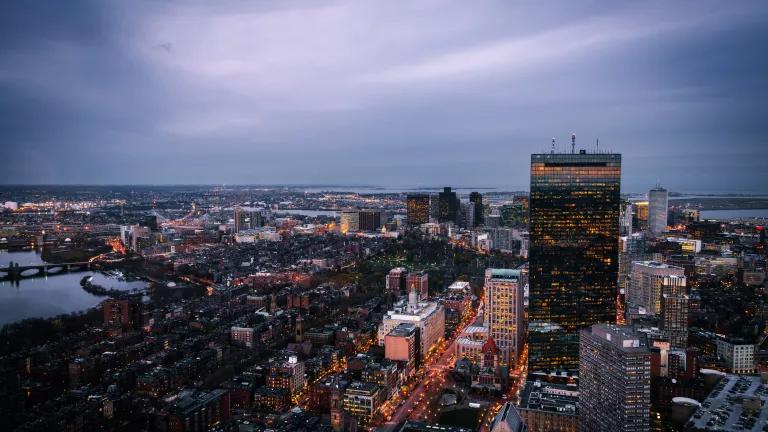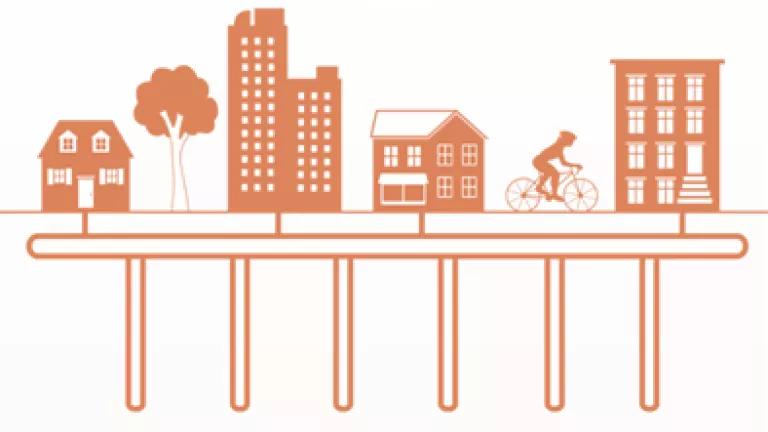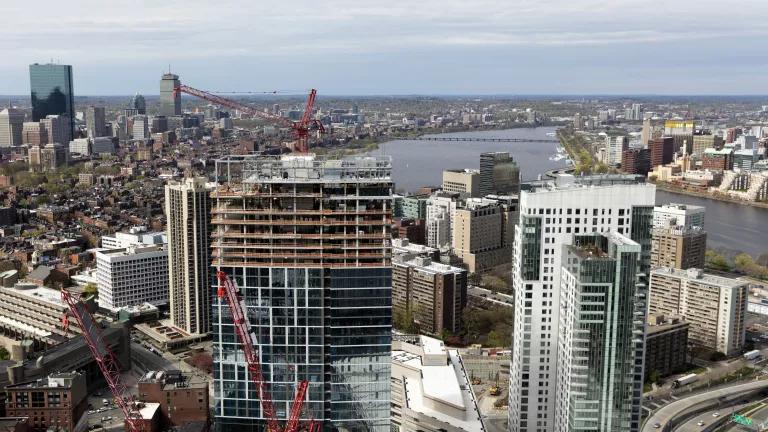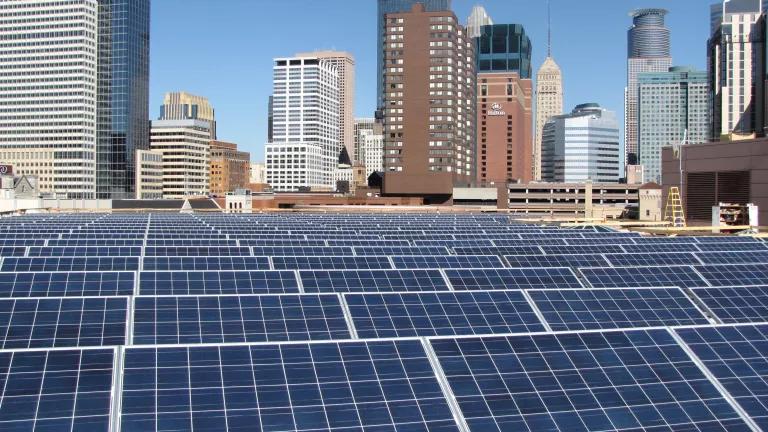Boston Passes Equitable Building Performance Standard
Becoming climate neutral by 2050 will have enormous implications for Bostonians: better air quality, reduced electricity bills, and a lower energy burden are just a few ways in which the standard will improve lives across the city.

Downtown Boston
Boston has taken a huge step to address their largest source of emissions—buildings. Boston City Council unanimously voted in favor of the Building Emissions Reduction and Disclosure Ordinance (BERDO 2.0) to require the largest buildings to meet increasingly aggressive emissions targets over time. Boston joins three other cities in adopting a performance standard, one of the most impactful ways a city can reduce its carbon footprint. BERDO 2.0 updates the Building Energy and Disclosure Ordinance (BERDO). This policy will play a major role in ensuring the city meets its goal to be net zero by 2050.

Boston city council voting to unanimously pass BERDO 2.0
This is a win for residents
This is a huge win for climate action in Boston and for centering the priorities and concerns of residents most impacted by climate change to have a say in the ordinance. Boston’s Environment Department set out to ensure the process was transparent and equitable—and they delivered. Policy priorities were developed with feedback from residents most impacted by pollution and climate change. The city convened a Resident Advisory Group with community organizations including Alternatives for Community & Environment (ACE), the Chinese Progressive Association, City Life/Vida Urbana, and New England United for Justice and facilitated by One Square World, which leads community-centered planning and policy development rooted in equity and sustainability. This process was supported by expert partners including NRDC, Building Electrification Institute, Institute for Market Transformation, and other partners in the American Cities Climate Challenge.
Here’s what this transparent and equitable process really looked like: over the course of several meetings, residents weighed in on their priorities for the policy, emphasizing the need for measures that addressed housing and air pollution. Specifically, they articulated that any policy adopted should improve their air quality, reduce energy bills for renters, improve heating and cooling in homes, not contribute to displacement, and create jobs for residents. The city listened. The ordinance passed today requires a review board, comprising two thirds of community members, that will be responsible for holding building owners accountable, as well as making decisions about any special exceptions. The board will also oversee the Equitable Emissions Investment Fund. Fines and compliance payments will be deposited into the Fund and allocated by the board to environmental justice projects. This is a huge step forward for centering people in the policy process.
Technical Features of BERDO 2.0
To develop emissions standards tailored to Boston’s varying building typologies, the city contracted with Synapse Energy Economics, which analyzed energy and emissions data and estimated cost impacts for mandatory greenhouse gas emissions targets. It also convened a Technical Advisory Group (TAG), with experts in fields ranging from building science to energy policy to affordable housing. The policy requires buildings over 20,000 square feet to meet emissions targets starting in 2025 and ramping down to ultimately be carbon neutral by 2050.
Using data submitted by Boston’s largest buildings in accordance with the Building Energy Reporting and Disclosure Ordinance, Synapse and its partners came up with policy recommendations for developing carbon targets, pathways to decarbonization, and cost analysis. While different buildings will employ different approaches to meeting the standard, each will use some combination of: (1) retrofitting buildings to be more energy efficient and reduce overall energy use, (2) eliminating the use of fuels that cause greenhouse gas emissions (e.g., combustion of fossil fuels), and (3) producing or purchasing clean energy to power building operations. For each pathway, Synapse quantified the potential energy and emissions savings associated with implementation, and estimated lifecycles costs and savings.
Becoming climate neutral by 2050 will have enormous implications for Bostonians: Better air quality, reduced electricity bills, and a lower energy burden are just a few ways in which the standard will improve lives across the city. By marrying technical expertise and community involvement, Boston has set an exciting precedent for transformative climate action.


